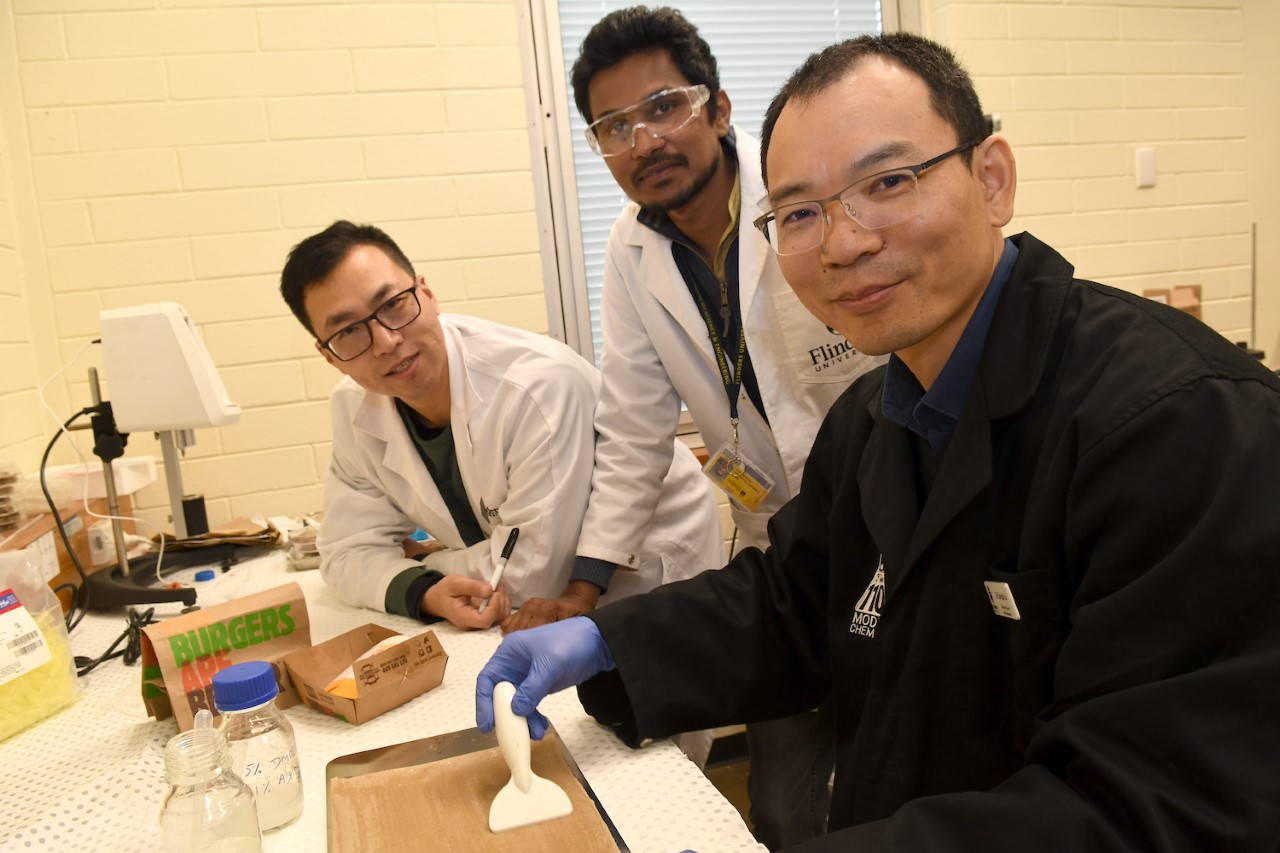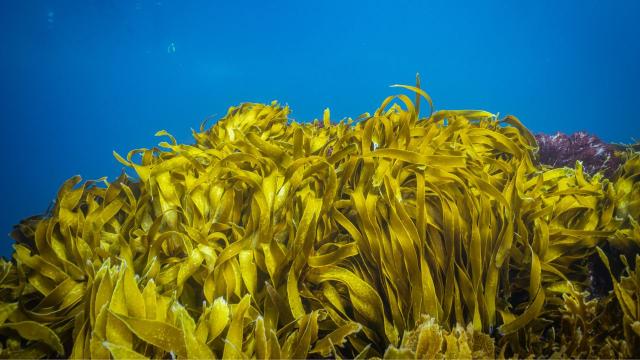When we talk about plastic rubbish polluting the earth, we don’t often talk about the environmental impacts caused by fast-food packaging. Researchers from Flinders University and German biomaterials developer, one · five (one point five) have started using seaweed in an effort to solve the packaging waste dilemmas of the fast-food industry.
Using seaweed to create sustainable alternatives to existing products isn’t a new concept. The idea of turning seaweed into a supermaterial to replace bubble wrap was floating around for more than seven years ago. More recently, New Zealand scientists are turning stinky seaweed into green power and fertiliser. This time, the Flinders University materials researchers and one · five are using seaweed extracts to develop next-generation biopolymer coating materials.

In essence, these new non-pollutive biomaterials are designed to replace the conventional fossil-based plastic coatings that are used in many grease-resistant fast-food packaging.
Although it’s not relatively spoken about or thought of, the grease-resistant paper used in fast-food packaging is more often than not coated in plastic and polyfluoroalkyl substances (PFASs), which are environmentally harmful chemicals.
The new seaweed prototype coating not only meets the required functionality standards of traditional grease-resistant packaging materials but also works to create an environmentally circular solution.
But how do they incorporate seaweed into these prototypes, you ask? Well, scientists took extracts from certain seaweeds and modified them to form degradable bioplastic films. The development was led by Dr Zhongfan Jia, lead researcher from the Flinders Institute for Nanoscale Science and Technology and research colleague Mr Peng Su in association with the Flinders Centre for Marine Bioproducts Development.
The seaweed used is native to the South Australian coastline for which its natural polymers have been extracted and used to create the biomass for the new fast-food packaging coating.
After the polymers have been extracted, they are transformed through a proprietary processing system to create functional biopolymer sheets. These sheets can then be cut or coated onto various surfaces.
If you’re concerned about the durability of the seaweed extracts, Dr Jia says that they have a similar structure to the natural fibres from which paper is made. According to Dr Jia, their “novel specialist treatments boost the grease-resistance feature of the seaweed via simple modifications while not affecting biodegradability nor recyclability of the coated paper.”

This ability to harness seaweed to create degradable bioplastic films for fast-food packaging that upholds standards is a pretty remarkable feat. Hopefully, this achievement can usher in more progress in creating sustainable and ecologically responsible biopolymer.
Speaking on the benefits of seaweed cultivation, one · five Co-Founder Clair Fusko said that it naturally rehabilitates marine environments, “reduce greenhouse gases and mitigate coastal erosion.” Basically, a whole bunch of good.
Flinders University and one · five are working together to create laboratory-scale processing to produce industrially-relevant volumes of the natural polymer coating, according to a press release.
Although achievements like these are definitely with celebrating, we can’t just stop at seaweed packaging. We need to use seaweed cultivation and other sustainable tools to effectively help reduce our environmental impact and make genuine change.
